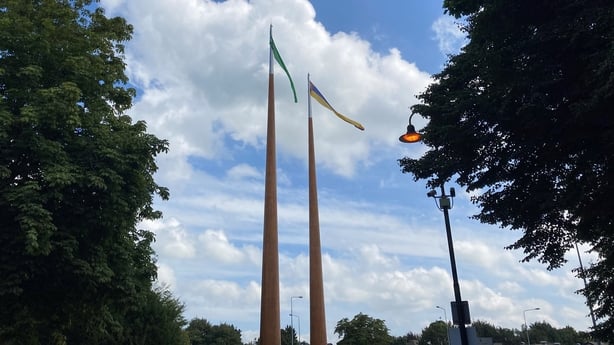Some gardaí have sought sexual services from sex workers despite knowing it was a crime to do so, according to a new report.
The report, I Must Be Some Person: Accounts from Street Sex Workers in Ireland, also says 2017 legislation criminalising the purchase of sex fails to make a distinction between voluntary consensual sex work as opposed to human trafficking sexual exploitation.
Anca Minescu, lecturer in psychology at University of Limerick and author of the report, told RTÉ's News at One that there was a pattern of negative experiences with gardaí.
Dr Minescu said the study was qualitative participatory designed research with peer sex workers interviewing other sex workers.
She said that the funding from the Department of Justice was to find how the 2017 legislation had affected street sex workers and how they manage to organise their practises and daily living around this law.
She said that questions tended to be around interactions with gardaí, and whether sex workers knew the law or their rights.
She said that there was a "pattern" of gardaí seeking the services of sex workers.
We need your consent to load this rte-player contentWe use rte-player to manage extra content that can set cookies on your device and collect data about your activity. Please review their details and accept them to load the content.Manage Preferences
Five out of 25 interviewed in Limerick and Dublin declared sexual assault and 80% of all participants spoke of harassment, discrimination and shaming and particularly being overpoliced.
She said that sex workers were very vulnerable, 50 percent did not know their rights or the law and fell victim to some officers manipulating the information.
She said that caused a lot of abuse as well as harassment and resulted in sex workers not going to gardaí in the worst case scenarios as they would not expect protection or a response.

In a minority of cases, she said there was a positive response from An Garda Síochána.
Dr Minescu said that sex workers feel unprotected on the street and are also live chaotic and unstable lives due to homelessness, addiction and trauma.
She said that Ireland needs to protect sex workers more as a State and society
She said that there were reports of shaming by female gardaí calling into question why other women would do this type of work.
Dr Minescu said that the definition of brothels has put sex workers at greater risk, as two or more sex workers operating from one premises is now considered a brothel.
She said this was one of the most common accounts in all of the stories.
She said this definition impacts safety as sex workers technically could not rent a house to have a safe place to work in.
She said this was damaging and has resulted in women coming up with DIY safety measures, such as carrying a pen and a notebook to take down the registration of a car or carrying a stone in their bag.
She said in general sex workers feel very lonely and isolated as they come from very traumatic and abusive relationships and could have ended up in sex work through domestic abuse or abusive relationships in their family, and the support they may get from a peer sex worker is often the best case scenario for their situation.

